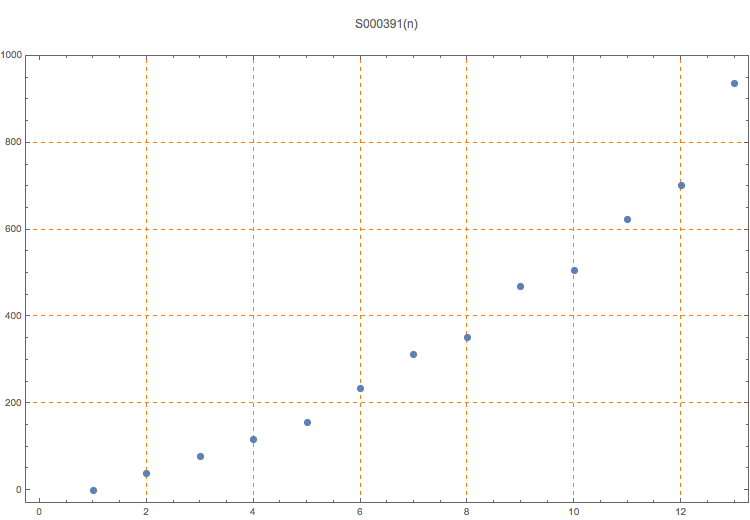Numbers n such that Gaussian primes x + I*n appear to have distributions similar to 4m+3 primes.
0, 39, 78, 117, 156, 234, 312, 351, 468, 507, 624, 702, 936
1
All the positive numbers here have the form 2^i * 3^j * 13^k for i >= 0, j > 0, and k > 0. When n = 0, we have the Gaussian primes which are also regular primes of the form 4m+3, such as 3, 7, 11, 19, 23, 31, 43, 47,…. Because the set of primes of the form 4m+3 is infinite, we expect the sequences of Gaussian primes to be infinite also, but that has not been proved.
The second plot below shows the relative frequency for sequences of Gaussian primes of the form x + I*n for n = 0..1000 for x up to 10^7. Most of those sequences appear to have more primes than the sequences generated by the terms in this sequence. The third plot below shows the relative frequency for sequences of Gaussian primes of the form x + I*n for n = 0..10000 for x up to 10^6. The structure in the plot is surprising.
T. D. Noe, Plot of 13 terms
T. D. Noe, Plot of 1001 fractions
T. D. Noe, Plot of 10001 fractions
Eric W. Weisstein, MathWorld: Gaussian Prime
nonn,nice,more
T. D. Noe, Dec 03 2014
